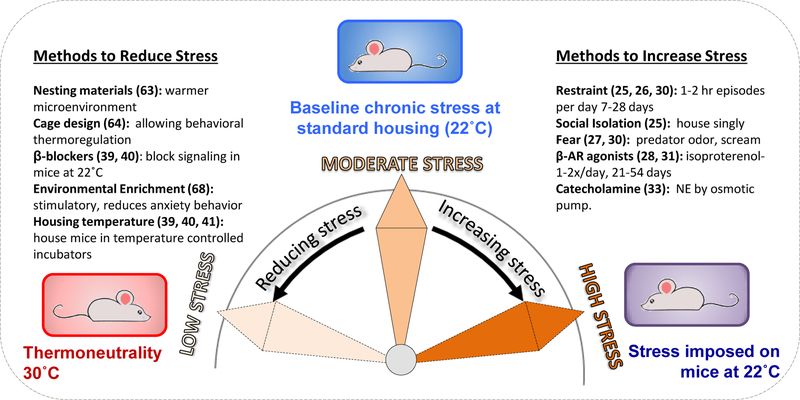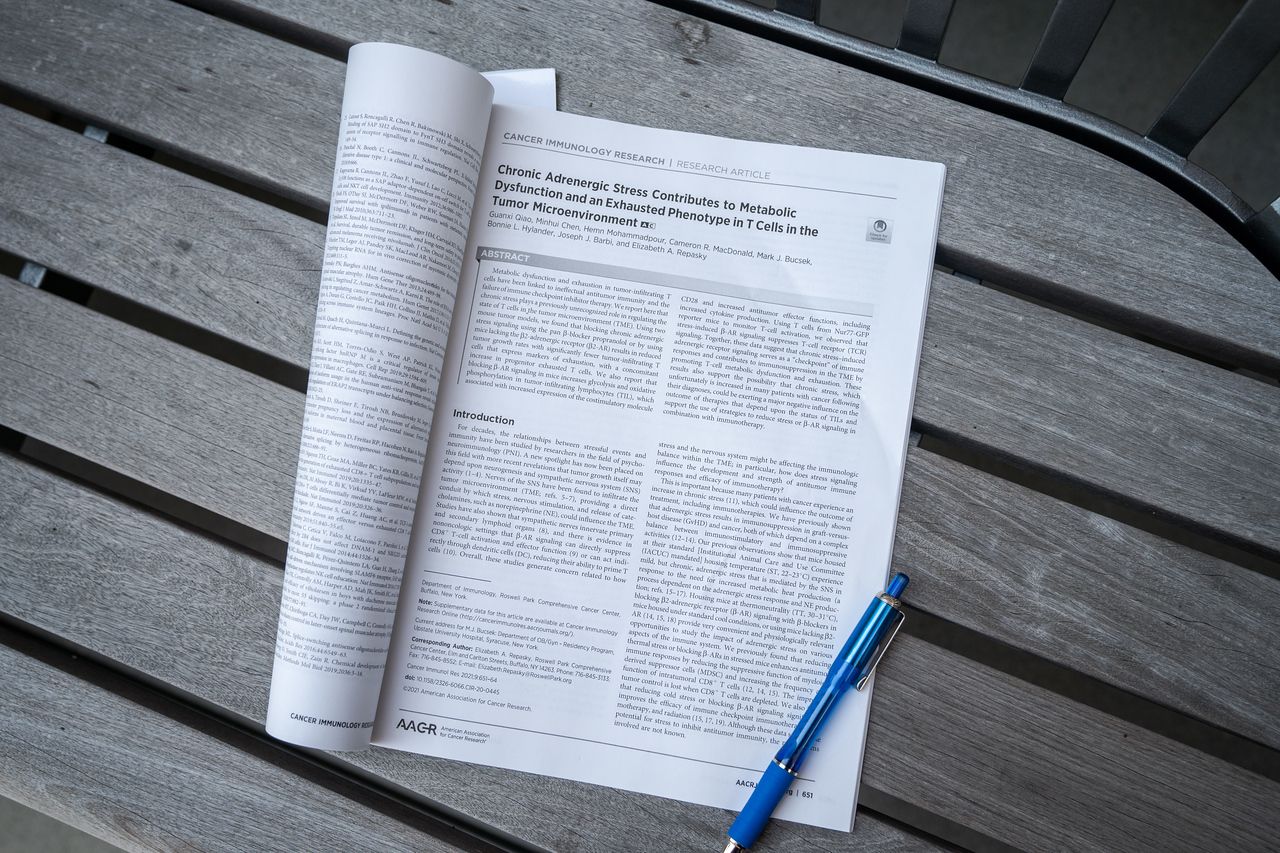Thermal stress and immunology
Transdisciplinary clinical inroads
For many years, our lab has studied the impact of core body temperature and the stress of disrupting thermoregulatory physiology on tumor growth and response to therapies.
Through a serendipitous chain of events, we began to suspect the relatively cool housing temperature mandated for laboratory mice was physiologically stressful and induced production of the “fight or flight” stress hormone, norepinephrine, which activates metabolic heat production.
We discovered that reducing this chronic, baseline stress by housing mice at a warmer temperature reduces tumor growth, including metastatic growth of tumors, and sensitizes the mice to a variety of anti-tumor therapies.
In a series of high-impact papers, we have reported that when sympathetic nerves are activated by either physiological or psychological stress, the neurotransmitters released play a key role in constraining the activation of CD8+ T cells ‒ immune cells critical for eliminating tumor cells, while also increasing the activity of immunosuppressive myeloid-derived suppressor cells (MDSCs).
These effects of chronic stress occur though molecular changes in stress-signaling pathways initiated by beta-adrenergic receptors on immune cells and overall results in significant suppression of the anti-tumor immune response.
Since these data strongly suggest that heterogeneity in patient response to immunotherapy and other therapies that induce anti-tumor immunity could be based on the varying degrees of adrenergic stress that patients experience in their lives, we are now collaborating with several clinical colleagues to test the impact of the beta-adrenergic receptor blocking drug propranolol on immunotherapy, as well as on chemo-radiation therapy.
Groundbreaking clinical trials: Beta blockers
NCT04682158
Propranolol with Standard Chemoradiation for Esophageal Adenocarcinoma A Phase II Study
NCT05651594
A Phase 2 Trial of Chemotherapy, Pembrolizumab, and Propranolol in Advanced Esophageal/Gastroesophageal Junction Adenocarcinoma Patients
NCT03384836
A Phase Ib/II Study of Propranolol with Fixed-Dose Pembrolizumab in Patients with Unresectable Stage III and Stage IV Melanoma
Why study the physiology of stress?
Stress is a popular topic in today’s press and has long been implicated in causing myriad health problems in the field of psychoneuroimmunology.
There is ample scientific data supporting this idea and searching the term “stress” on the NIH website returns an ominous list of studies linking chronic stress to depression, psychiatric disorders, obesity, memory loss, heart disease, auto-immune disease and cancer.
Despite this intense interest, our understanding of these interactions is still limited. Critical questions remain regarding the precise mechanisms by which stress exerts a myriad of detrimental effects.
Exploring and answering these questions will enable development of therapeutic approaches to target these pathways and improve patient outcomes.
Connect with the Repasky Lab
Department of Immunology
Roswell Park Comprehensive Cancer Center
Elm and Carlton Streets
Buffalo, NY 14263

